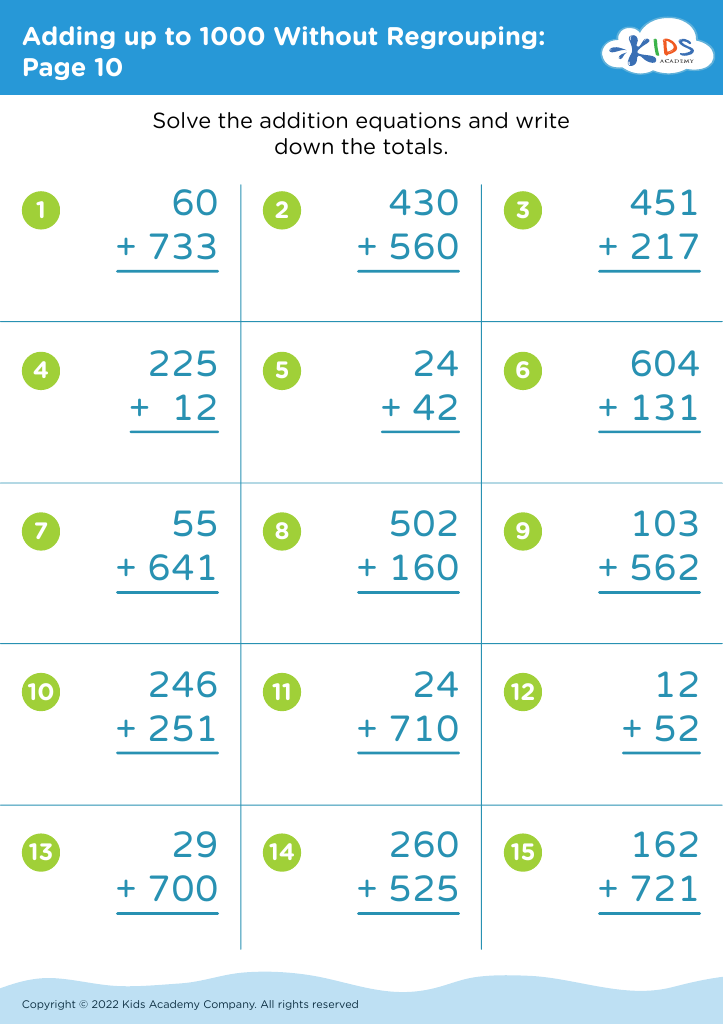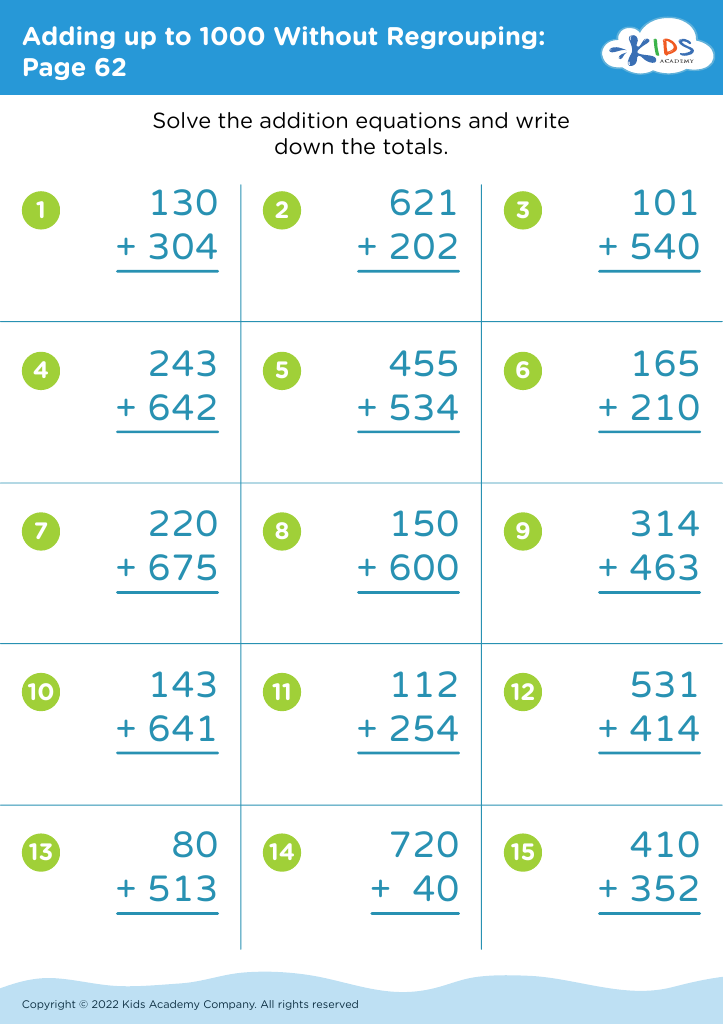Basic Math Skills Adding up to 1000 Without Regrouping Worksheets for Ages 5-9
3 filtered results
-
From - To
Discover our engaging "Basic Math Skills: Adding Up to 1000 Without Regrouping Worksheets" designed specifically for children aged 5-9. These worksheets offer a fun and interactive way for young learners to reinforce essential addition skills, building confidence and competence in mathematics. With a focus on adding numbers without regrouping, kids will strengthen their ability to perform problems involving sums up to 1000. Ideal for classroom activities or at-home learning, our worksheets ensure that mathematics is enjoyable and effective. Support your child's mathematical journey and watch them excel as they practice fundamental concepts in a vibrant and stimulating environment.
Basic math skills, particularly the ability to add up to 1000 without regrouping, serve as foundational building blocks for young learners aged 5-9. Parents and teachers should care about this developmental phase because mastering such skills helps instill confidence and a strong number sense in children. Understanding addition without regrouping allows students to grasp essential mathematical concepts more effortlessly as they advance in their education.
Trading basic arithmetic proficiency fosters critical thinking skills and problem-solving abilities, which are vital not only in mathematics but also in daily life scenarios. When children can quickly and accurately add numbers, they become more prepared to tackle larger concepts, such as multiplication or multi-step problem-solving.
Moreover, the ability to solve these problems reinforces concentration and mental discipline, aiding in their overall cognitive development. This skill also enhances children's performance in standardized testing and future math assessments. Therefore, nurturing these basic skills during this critical developmental window not only contributes to academic success but also builds a strong foundation for lifelong learning and self-esteem. In essence, supporting the acquisition of these skills is a pivotal investment in a child's educational journey.













